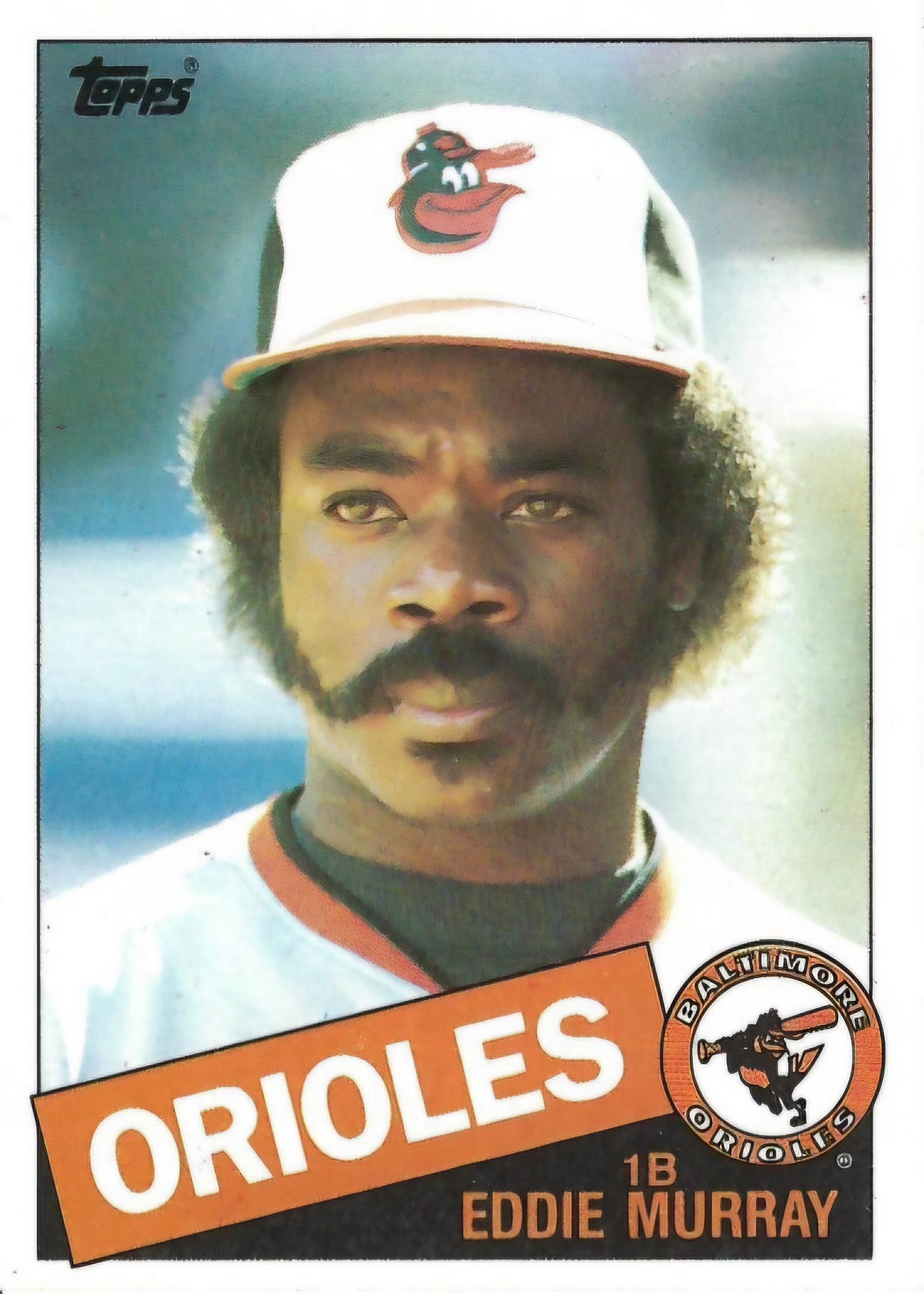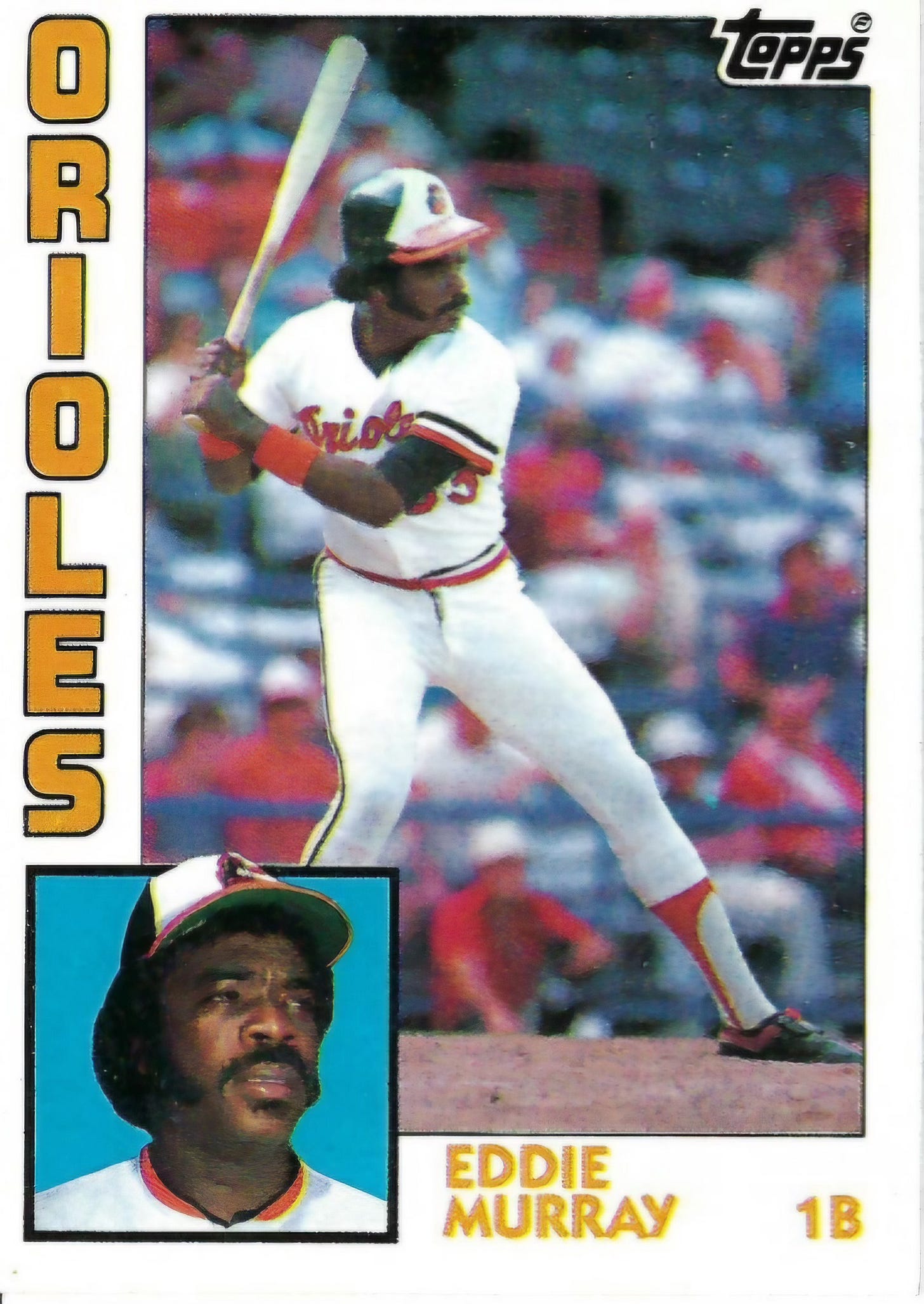The Bird Tapes Interview: Eddie Murray
Given our relationship, or lack of one, I wasn't sure I'd get to interview the future Hall of Famer for my book on Orioles history a quarter-century ago. Fortunately, he gave me time and opened up.
When I flew to Arizona in the fall of 1999 to research my book on Orioles history, I had two interviews booked. Frank Robinson was working for the commissioner’s office as the president of the Arizona Fall League. Harry Dalton lived in the mountains outside Phoenix. Both had said they’d speak to me.
I wasn’t nearly as sure that I’d get Eddie Murray to agree to an interview.
He was managing an Arizona Fall League team. Through an intermediary, I’d established a date and time for us to meet in the dugout before a game.
But meeting in the dugout was one thing and actually having a conversation was another. I had worked for the Baltimore Sun for 15 years at that point, writing extensively about the Orioles and Murray when he was still on the team. But we’d never actually spoken one-on-one.
Murray’s sour relationship with the media was well established when I’d arrived in Baltimore in 1984. He was a magnificent player, one of baseball’s most productive hitters, but an article about him during the 1979 World Series had upset him enough to permanently curdle his feelings for just about all media.
He didn’t make a big show of it, just politely declined to speak almost whenever he was asked. It was unfortunate because his teammates swore by him and plenty of fans around Baltimore had stories about interacting with an Eddie who was friendly and thoughtful. As central as he was to the Orioles’ fortunes, his thoughts on all subjects were important.
But I wasn’t going to hear them, not in the 1980s. My press box colleagues who’d been around the team longer advised me not to even try to interview Murray.
I didn’t help the situation. After wining for years, the Orioles entered a decline in my first years covering them. My commentary wasn’t always kind, and even though Murray continued to produce, he wasn’t always lauded and didn’t like the tone.
When I covered his arrival at spring training with the Dodgers in 1989, months after the Orioles had traded him, he refused to speak until I left the circle of reporters around his locker.
A decade later, waiting for him in that Arizona Fall League dugout, I had grave doubts about whether he’d participate. But he arrived and I explained what I was doing, interviewing every major figure in Orioles history for a book. Grudgingly, I’m sure, he agreed to answer some questions, at least for awhile.
I’m grateful that he did. The interview that resulted is available below to paid Bird Tapes subscribers, and while it isn’t long, it’s full of gems. Drafted by the Orioles at age 17 in 1973, Murray was not just a fabulous player; he fully experienced what made the Orioles so great for so long, and also, what caused their decline.
The tension between us is evident only briefly in the interview, when we’re discussing his departure, which he wanted. “You guys had done a good enough job that it was time to go,” he says, referring to the media.
But listening closely, it’s really the criticism he received from the Orioles’ owner, Edward Bennett Williams, that stung him to the point that he wanted to leave. In 1986, the owner publicly questioned Murray’s offseason work habits and said his defense and lack of extra-base hits were “hurting the team.” Although Williams later apologized, it was too late. The relationship between Murray and his team had been ruined. Such criticism from ownership “was something I didn't feel like I had to deal with,” Murray told me.
When he was dealt, he had been with the organization for 15 years, and in our interview, Murray obviously enjoys recalling his formative years, chronicling a storyline that could be titled “The Making of a Hall of Famer,” with mentors such as Lee May and Elrod Hendricks playing key roles. Ever so briefly, he’d opened a window into his experience and shared it.
We’ve never spoken again, not even when he was elected to the Hall of Fame in 2003. But whatever went on between us, or didn't, had zero impact on my opinion of his Hall credentials. I had a vote in those days, before I left the paper, and with his career totals of 504 home runs and 3,255 hits, Murray was one of the easiest first-ballot selections I ever made.
(Note: You can click this link to upgrade to a paid Bird Tapes subscription, enabling you to hear my interview with Murray and the rest of my collection of vintage interviews from a quarter century ago.)
Keep reading with a 7-day free trial
Subscribe to The Bird Tapes to keep reading this post and get 7 days of free access to the full post archives.






